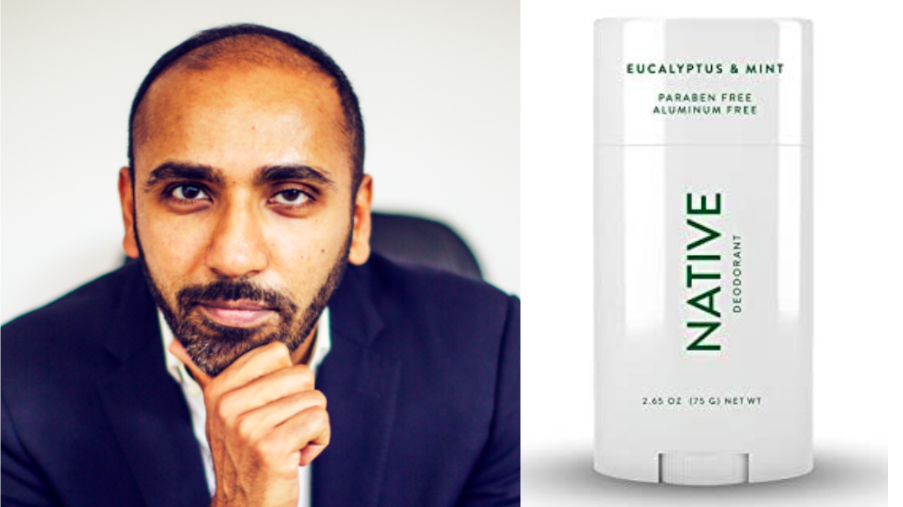When Moiz Ali decided to establish a deodorant company, he started out with an investment of just $1K. That was back in 2015, when Ali launched “Native” in San Francisco. Fast forward to November 2017, when Procter & Gamble acquired Native for $100 million. This was P&G’s first acquisition in nearly a decade.
Today, Native has over a million customers nationwide, formulating products for men, women, and those aged 8-18. The personal-care brand focuses on being natural, and keeping products aluminum, paraben, and sulfate-free. With this focus and the recent acquisition, Native has become one of the fastest growing consumer packaged goods enterprises in the US.
In the words of Ali himself, much of Native’s playbook is akin to what Whole Foods did in the food category—marketing products with an emphasis on health and on how the ingredients are safe for consumers.
Moiz Ali Learns the Trade
After graduating from the University of Florida with a BA in 2005, Ali went on to study at Harvard Law School. Following graduation, his initial experience in the industry came as an associate at Simpson Thacher & Bartlett. He saw one side of the business trade there, while representing clients in mergers and corporate transactions.
But eventually, Ali moved on to begin his entrepreneurial journey. He co-founded Caskers, an e-commerce company focusing on craft spirits and offering flash sales, with an old friend from law school. They quit their respective firms, and launched headfirst into the world of business.
Despite the lack of outside investment, Caskers went on to generate millions in revenue, helping set up the next phase in Ali’s career—Native.
Launching Native to Quick Success
Ali only started Native in August 2015. For the first year, he was the only employee, handling everything himself.
“I wish Silicon Valley didn’t glorify massive fundraising rounds as much as they do,” says Ali. “People don’t respect how much one person can do.”
The way Ali recites how he responded to one of his friends asking him what he knew about deodorant sums up his approach to Native’s rapid growth: “I know nothing, and in six months, I’m going to become one of the world’s leading experts on deodorant…I’m just going to spend my time learning, and I’m going to figure it out.”
With this mindset, Ali set out to make Native relevant in the industry. This philosophy sits at the core of the advice he would give to new entrepreneurs: “[Become] the experts in the field.”
He goes on to explain how much success he owes to being the “right category at the right time.”
According to Ali, much of this strategy was influenced by what other successful enterprises were able to accomplish. For example, he watched the immense growth of Whole Foods, and drew on this for inspiration. In Ali’s view, growing sensitivities about what people “put in their bodies” could easily be transformed into similar sensitivities about what they “put on their bodies.”
Moiz Ali Offers Consumers Quality Assurance
In this sense, what Native was able to achieve is akin to the success Whole Foods has enjoyed. In fact, Ali himself notes that he set out to do with Native “what Whole Foods did, [but] to the deodorant category.”
One potential challenge was about the format and applicability of the products. “People want stick deodorants,” says Ali. Where they innovated was, primarily, offering the right format. “Even the hipsters who live in Portland, who have a bunch of tattoos and piercings” don’t want “jars [of natural deodorant], where they have to put their finger in and rub the deodorant in their armpits.”
So Ali first focused on giving people the right format—branding Native not as “something very hipster or grungy, but something mainstream.” More importantly, this emphasis on formatting and branding implied an emphasis on health. Ali understands that instead of using products with ingredients people do not understand, consumers want to use products with “ingredients that sound, and are, a lot safer.”
Starting out as with a direct-to-customer business model, Native is now featured in thousands of Target and Walmart stores.
See their catalogue here.



